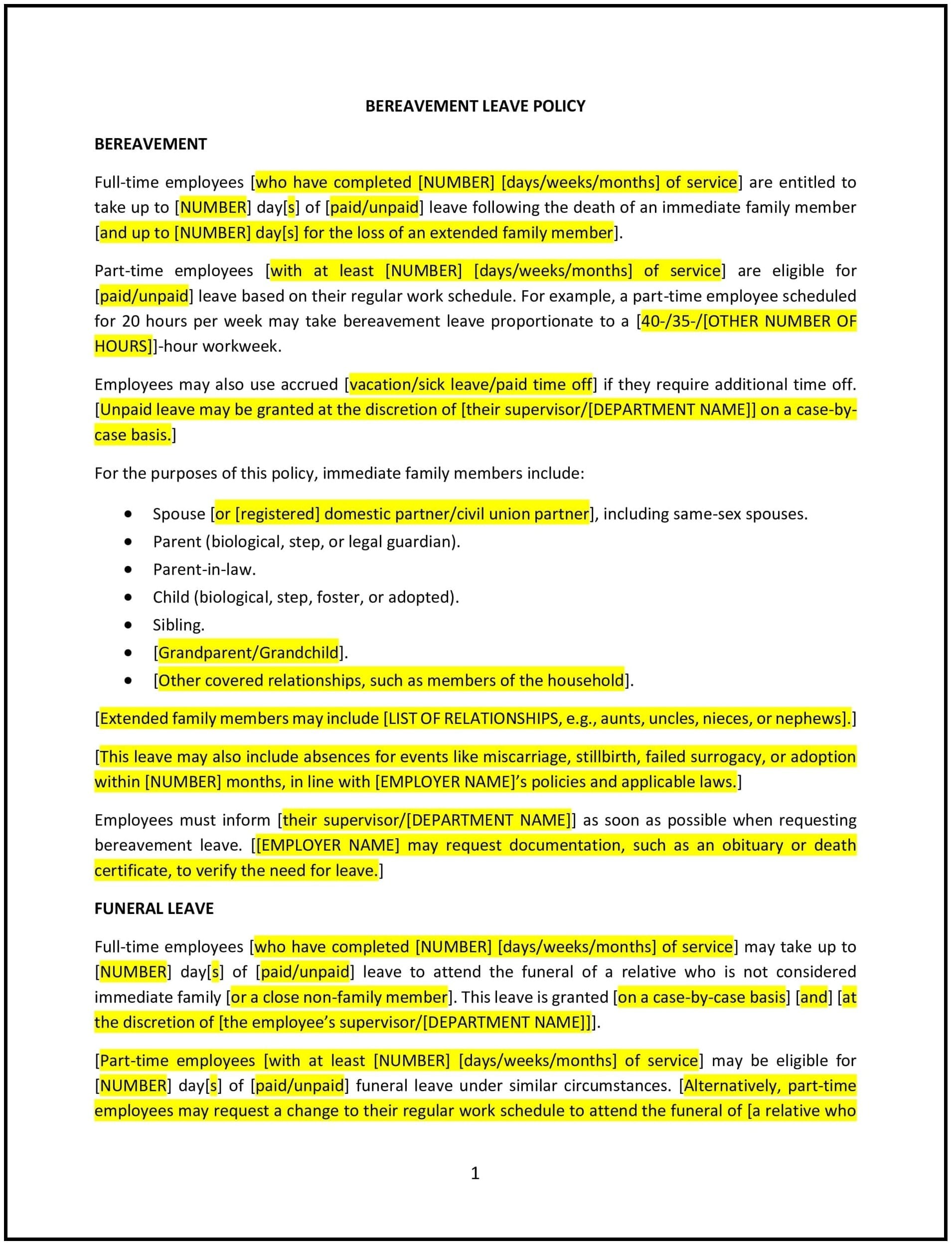Got contracts to review? While you're here for policies, let Cobrief make contract review effortless—start your free review now.

Customize this template for free
Bereavement leave policy (Maryland)
This bereavement leave policy is designed to help Maryland businesses provide employees with time off to grieve and manage personal responsibilities following the death of a loved one. It outlines clear guidelines for eligibility, duration, and procedures, reflecting Maryland’s workplace norms and accommodating employees' needs during difficult times.
By adopting this policy, Maryland businesses can demonstrate compassion, support employee well-being, and promote a positive workplace culture.
How to use this bereavement leave policy (Maryland)
- Define eligible relationships: Specify the family members or loved ones whose passing qualifies an employee for bereavement leave.
- Outline leave duration: Detail the amount of leave employees may take, distinguishing between paid and unpaid leave if applicable.
- Include notification procedures: Require employees to inform their supervisor or HR as soon as possible and provide any necessary documentation, such as an obituary or funeral program.
- Address flexibility: Allow for extensions or adjustments to leave in special circumstances, such as travel for funeral services.
- Align with existing leave policies: Integrate bereavement leave with other leave policies, such as PTO or unpaid leave options.
- Ensure clarity: Provide clear instructions on how employees can apply for bereavement leave and who to contact for assistance.
Benefits of using this bereavement leave policy (Maryland)
Implementing this policy offers Maryland businesses key advantages:
- Supports employee well-being: Provides employees with time to grieve and handle personal matters without additional stress.
- Promotes workplace morale: Demonstrates compassion and understanding, fostering loyalty and trust among employees.
- Reduces absenteeism: Encourages employees to take planned time off rather than handling responsibilities unpredictably.
- Aligns with workplace standards: Reflects Maryland’s focus on balancing work and personal needs.
- Enhances communication: Establishes a transparent process for requesting and managing bereavement leave.
Tips for using this bereavement leave policy (Maryland)
- Communicate the policy: Share the policy during onboarding and include it in employee handbooks for easy reference.
- Train managers: Educate supervisors on handling bereavement leave requests with sensitivity and consistency.
- Consider cultural differences: Be flexible and respectful of diverse mourning practices when granting leave.
- Encourage open dialogue: Create a supportive environment where employees feel comfortable discussing their needs.
- Review regularly: Update the policy to reflect changes in workplace norms or Maryland employment practices.